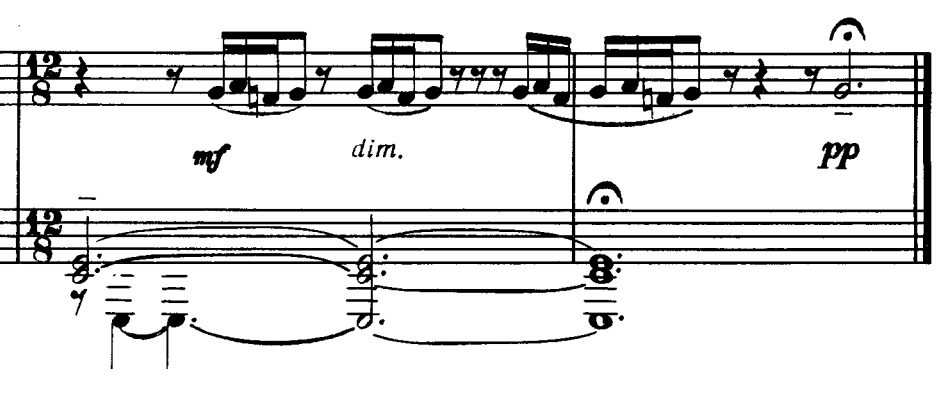Next week, I will play my last service as a substitute organist at Beautiful Savior/Our Redeemer Lutheran Church. For almost exactly two years, it has been a privilege to help lead worship.
Tonight I played my first service as resident organist at Advent Lutheran Church, where I will play regularly until at least April of next year. Due to a scheduling change, I stepped in on short notice for the Thanksgiving evening service.
For some readers, this may come as a bit of a surprise. I talk a lot about musicals and choral music here, and playing piano. But organ is not a regular topic. So here’s some backstory.
First Interest
My most adventurous year of college (academically) was 2012, spring of my sophomore year and fall of junior. That was the year I joined a few new choirs, Phi Mu Alpha Sinfonia fraternity, and explored the idea of organ lessons.
My first semester of organ was actually spring of 2013, with Dr. Joyce Jones. Dr. Jones was the retiring professor of organ at Baylor, after about 40 years there. I was incredibly lucky to work with her for a semester, and I learned a ton. I spent more time practicing the organ than any other instrument for that semester, and I was able to play a Bach prelude and fugue (my first!), and a great chorale prelude by Pachelbel.
That fall, after Dr. Jones retired, I returned to organ lessons with Dr. Isabelle Demers. We focused more on manual technique, and I played some more colorful pieces under her instruction, including my own transcription of the overture from The Phantom of the Opera in full costume for the Baylor Organ Studio Halloween Concert.
I took a break from the organ after that. My course requirements were heavier, and I didn’t feel like I had the time to focus on it. Besides, it wasn’t something I would have much opportunity to do.
Revival
Jump forward to spring of 2015 as I was finishing out the year at Pasadena High School, and looking for my next step. Through a family friend, I found out that Judy Kutach, at Living Savior Lutheran Church in Montgomery, TX needed a substitute for a service over the summer. We met up, and I became a regular substitute for her (a few times per year).
The following spring, she recommended me to Lee Roeder, who played at Beautiful Savior/Our Redeemer Lutheran Church, who asked me to come in and substitute for her. She has employed me about once per month on average since then, sometimes on consecutive weeks.
I’ve also substituted for Dave Englert, who is organist at Resurrection Lutheran Church in Spring. Dave has also become a source of knowledge for me, and I hope to take some lessons with him in the spring of 2019.
Professionalism
Things really started stepping up during the summer of this year. On the recommendation of a friend, I went into an interview to take over organ duties at The Woodlands United Methodist Church, which is a major church in my neighborhood. However, I cordially withdrew after discovering it was a full-time position. As exciting as that opportunity would be, I couldn’t make that change in direction.
In the fall, Lee approached me about taking over for her, as she is preparing to retire. Since this is a smaller church, I was excited for the opportunity. The church was willing to keep considering me, even though I may move for grad school. But they moved slowly with the interview/review process.
Out of the blue, Scott McAdow at Advent Lutheran sent me an e-mail. He heard me accompany band students at their UIL Solo & Ensemble competition back in February. He approached me about taking over for their organist, mostly because he knew my piano skills. He actually didn’t know any of my organ background.
I met with Scott and played some of my typical substitute pieces, plus showing that my piano skills are as good or better than what he remembered me. (Actually, my audition for him was the same day as my first rehearsal for the production of [Title of Show] that I wrote about recently.)
He moved more quickly than Beautiful Savior/Our Redeemer and offered me the position pretty much on the spot. After conferring with Lee, I withdrew from consideration for her position and have already begun duties at ALC.
This week, at Dave Englert’s advice, I joined the American Guild of Organists, and I have watched many of their “Lessons for the New Organist” YouTube series. I’ve been reading through back editions of The American Organist, their monthly magazine. Dave has advised me to look at some of their certifications, as it will build my skills. I think it will also be useful to lend me some legitimacy, in the event that I am looking for an organ position while in grad school.
I will spend some of my thanksgiving break working on building up my weaker skills (pedals) and I will start lessons with Dave in the spring. I’m excited to take on this new challenge!







